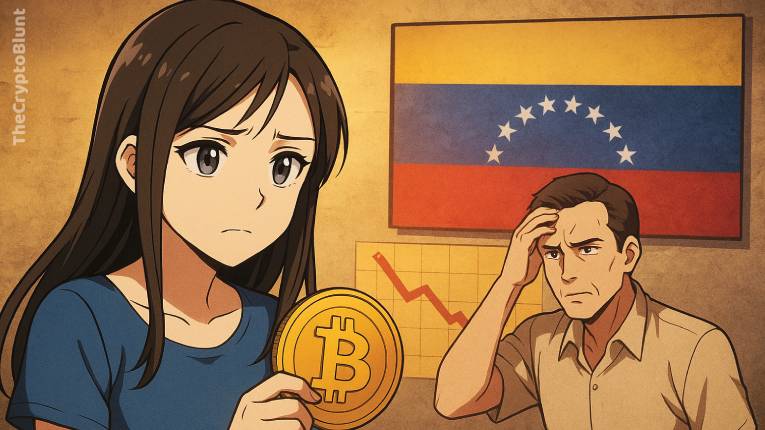From corner shops to big retailers, stablecoins are being embraced by Venezuelans as inflation soars and the bolívar loses over 70% of its value.
Cryptocurrencies are becoming a core part of the economy in Venezuela as citizens turn to digital assets to shield themselves from a collapsing currency and tighter government controls.
From small family stores to large retail chains, shops across the country now accept crypto through platforms such as Binance and Airtm. Some businesses even use stablecoins to pay employees, while courses dedicated to digital assets have been begun to be offered by universities.
“There’s lots of places accepting it now,” shopper Victor Sousa, who paid for phone accessories with USDt USDT $1.00, told the Financial Times. “The plan is to one day have my savings in crypto.”
According to the Chainalysis 2024 Crypto Adoption Index report, Venezuela was ranked 13th globally for crypto adoption, which noted a 110% increase in usage during the year.
Venezuelans Seek Refuge in Crypto as Bolívar Collapses
The continued slide of the bolívar currency has intensified demand for crypto. Since the currency was stopped being defended by the government in October, it has lost more than 70% of its value. According to the Venezuelan Finance Observatory (OVF), inflation reached 229% in May.
“Venezuelans started using cryptocurrencies out of necessity,” said economist Aarón Olmos. He noted that they face inflation, low wages, foreign currency shortages, and difficulty opening bank accounts.
However, access is not always smooth. With U.S. sanctions on Venezuela’s financial sector, Binance restricts services linked to sanctioned banks and individuals. Connectivity issues also hinder widespread use. Still, it is said by experts that the ecosystem is resilient, per the FT report.
The government’s stance on crypto remains inconsistent. Venezuela launched its own digital currency, the petro, in 2018, but the project collapsed last year. The main exchange regulator was shut down in 2023 following corruption allegations tied to oil-linked transactions.
Venezuelans Turn to Crypto for Remittances
As was reported , crypto remittances have become a crucial lifeline for Venezuelans as the country’s economy sinks deeper into crisis. In 2023, digital assets made up 9% of the $5.4 billion in remittances sent home, about $461 million.
Families are increasingly relying on cryptocurrencies over traditional services like Western Union, which are weighed down by high fees, delays, and currency shortages.
Meanwhile, military tensions are rising between the U.S. and Venezuela. On Tuesday, a naval vessel and drone deployment was announced by Venezuela’s defense minister to patrol the country’s Caribbean coast following Washington’s decision to send an amphibious squadron of three warships, joined later by a missile cruiser and a nuclear-powered submarine, to the region.
The buildup comes after the Trump administration accused President Nicolás Maduro of working with cartels and expanded its pursuit of Venezuelan leaders, doubling the reward for Maduro’s capture to $50 million, and a $25 million reward was offered for Interior Minister Diosdado Cabello.
















